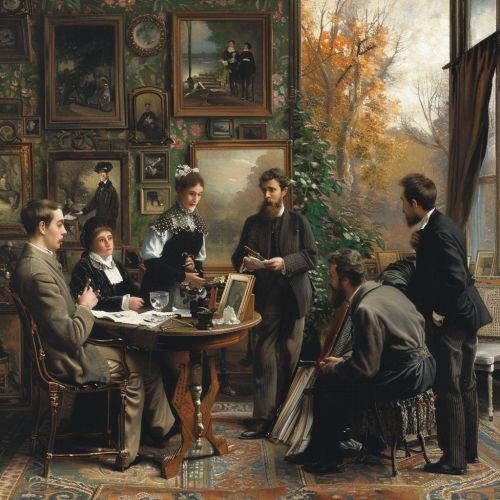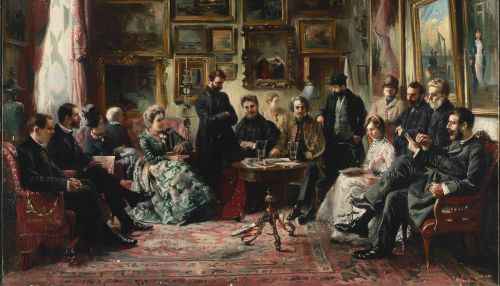Decadents
Introduction
The Decadents were a group of late 19th-century artists who believed in the superiority of art over nature and held the aesthetic experience to be the ultimate purpose of existence. The movement was characterized by self-disgust, sickness at the world, general skepticism, delight in perversion, and employment of crude humor. The Decadents championed the idea of art for art's sake, rejecting the notion that art should have a moral or political message.
Origins
The Decadent movement originated in France in the late 19th century, in the writings of French authors such as Baudelaire, Verlaine, and Rimbaud. The term "decadent" was first used by French critic Bourget to describe these authors in his 1881 essay "Le Décadent". The term was quickly adopted by the authors themselves, who saw it as a badge of honor.


Characteristics
The Decadent movement was characterized by a rejection of the natural world and a celebration of artificiality. Decadents believed in the superiority of the human imagination over nature and the sense of sight over the other senses. They valued the exotic, the erotic, and the perverse. The Decadent style was marked by precision, elegance, and sophistication. It was also characterized by a fascination with death and decay, a predilection for the morbid and the grotesque, and a delight in the bizarre and the unusual.
Influence
The Decadent movement had a profound influence on the development of modernism in the 20th century. It was a precursor to the Symbolist and Surrealist movements, and it had a significant impact on the work of later writers such as Joyce, Eliot, and Woolf. The Decadents' emphasis on the primacy of the individual imagination and their rejection of the natural world can be seen as a precursor to the development of abstract art.
Notable Figures
Among the most notable figures of the Decadent movement were Wilde, Huysmans, and Beardsley. Wilde, an Irish writer and poet, was one of the most prominent figures of the movement. His novel "The Picture of Dorian Gray" is considered a classic of Decadent literature. Huysmans, a French author, is best known for his novel "Against Nature", which is often cited as the definitive Decadent novel. Beardsley, an English illustrator and author, was a leading figure in the Aesthetic movement, which was closely associated with Decadence.
Criticism
The Decadent movement was widely criticized in its time for its perceived immorality and its rejection of traditional values. Critics saw the Decadents as decadent in the moral sense, as well as in the aesthetic sense. They were accused of promoting vice and immorality, and their work was often censored or banned. However, the Decadents saw themselves as rebels against the stifling conventions of Victorian society, and they took pride in their status as outsiders.
Legacy
The Decadent movement left a lasting legacy in the world of art and literature. Its influence can be seen in the work of many 20th-century artists and writers, and its ideas continue to resonate today. The Decadents' emphasis on the primacy of the individual imagination, their rejection of the natural world, and their celebration of artificiality have all had a profound impact on the development of modern art and literature.
